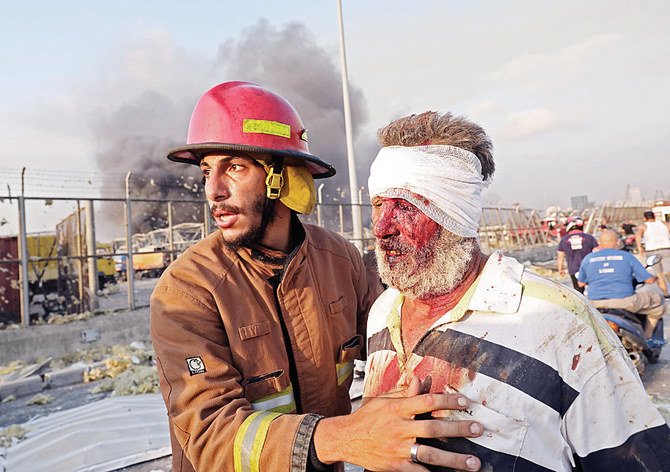
- ARAB NEWS
- 14 Jul 2025

Tarek Ali Ahmad
LONDON: Until now, all Lebanon had to contend with this year had been a devastating pandemic, a crippling economic collapse and a government accused of corruption and incompetence.
Now this. And it’s only August.
“This has been the worst year for Lebanon by far,” Karim Nahouli, from Beirut’s Ras Al-Nabaa district, told Arab News.
“We’ve had 15 years of civil war, then another war in 2006 with Israel, and assassinations throughout, but this is definitely Lebanon’s year from hell.”
Lebanese have been living through an unprecedented financial and economic crisis in which the pound has lost more than 80 percent of its value in eight months, pushing up the price of imported goods by up to five times.
“The people are tired. We are all exhausted and drained from the never-ending bad news that continues to appear on our phones and social media,” said Samer Asmar, a Lebanese expatriate medical researcher in Arizona.
“I haven’t been able to focus fully on anything since the protests began, and it’s been continuously downhill from there.”
Protesters denouncing the country’s political regime took to the streets on Oct. 17 last year, and they were there again on Tuesday demonstrating against constant power cuts.
Electricity issues have plagued the country for years, with recent power cuts going on for up to 20 hours a day.
Then the COVID-19 pandemic this year accelerated the country’s economic collapse as scores of shops, restaurants and malls closed amid the lockdown.
“Lebanon is fighting a war on three levels: On the health level, on the political level, and now a war for their lives, wellbeing, and safety,” Nahouli said.